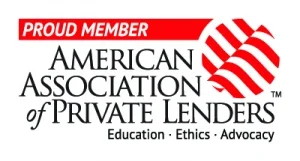Ever wondered how real estate investors get loans without using their own income? The secret is Debt Service Coverage Ratio (DSCR) loans. But how do you apply for one to grow your investment portfolio?
Understanding the DSCR loan process is key. It starts with finding a lender like Tidal Loans LLC. Call Tidal Loans LLC at 832-757-1262 or email info@tidalloans.com for help. The application has important steps like finding a lender, getting property info, and submitting documents.
DSCR loans focus on the property’s income, not the borrower’s. This is great for real estate investors. These loans offer up to 80% of the property’s value and can be up to $3,000,000.

Click here to learn more about DSCR loans. This guide will help you apply successfully.
Key Takeaways
- DSCR loans focus on property income, perfect for real estate investors.
- The application process involves finding a lender like Tidal Loans LLC and submitting documents.
- These loans offer up to 80% of the property’s value, with amounts up to $3,000,000.
- With a minimum credit score of 660, DSCR loans assess the property’s financial health.
- They are flexible for various property types, including homes and commercial spaces.
What is a DSCR Loan?
For real estate investors, knowing about DSCR loans is key. Tidal Loans LLC offers these loans. They check if a property can pay off its loan on time. Let’s dive into why these loans are special and good for investors.
Definition of DSCR
The Debt Service Coverage Ratio (DSCR) is a way to measure a property’s health. It compares the property’s income to its loan payments. The formula is:
DSCR = Net Operating Income (NOI) / Debt Service
Lenders look for a DSCR of 1.25 or more. This means the property makes 25% more than it owes. It helps cover unexpected costs or empty months.
Purpose and Benefits
DSCR loans check if a property can pay for itself, not the borrower’s income. This is great for self-employed or freelancers with unpredictable incomes.
DSCR loans have many perks:
- They often have lower interest rates and longer payback times, making lenders less worried.
- Investors can get bigger loans based on the property’s income, helping with big investments.
- The application process is faster and easier because it focuses on the property’s income, not the borrower’s credit.
But, there are some rules to follow. Borrowers need a credit score of 620 or better. The property must have a DSCR of at least 1.2 to 1.25. Still, DSCR loans are a smart choice for investors looking to grow their wealth while managing risks.
DSCR Loan Requirements
Understanding the DSCR Loan Requirements is key to securing financing for investment properties. The DSCR, or Debt Service Coverage Ratio, measures a property’s rental income against its debt. Lenders use this metric to assess the loan’s viability.
Loan-to-Value Ratio (LTV)
The Loan-to-Value Ratio (LTV) is crucial when qualifying for a dscr loan. Lenders usually set the LTV ratio at 80% or less. This means investors must provide a down payment of at least 20%. The LTV ratio is a risk assessment, ensuring the loan amount doesn’t exceed the property’s value.
Debt Service Coverage Ratio (DSCR)
The Debt Service Coverage Ratio (DSCR) is key for lenders. A DSCR of 1.2 or higher is generally required. For example, if an investor has $50,000 in annual rental income and $40,000 in annual debt, the DSCR would be 1.25. This shows the property generates 25% more income than needed to repay the loan, a positive sign for lenders.
Investors aiming to improve their DSCR might consider two to four-unit properties. These can yield higher DSCR and cash flow than single-family homes, especially for properties over $400,000.
Credit Score
The credit score is another critical factor in qualifying for a dscr loan. Lenders usually require a minimum credit score of 660. However, better terms might be available for borrowers with scores of 680 or higher. A strong credit score shows reliability and financial responsibility, increasing loan approval chances.
Property Types
DSCR loans are available for various property types. Eligible properties include single-family homes, multi-unit dwellings, and commercial spaces that generate income. It’s important to note that DSCR loans are not for owner-occupied properties. They focus on investment properties that provide consistent rental income.
In my experience, meeting all these DSCR Loan Requirements can streamline the approval process. It also enhances the likelihood of getting favorable loan terms.
How to Apply for a DSCR Loan
Applying for a DSCR loan involves several important steps. These steps help ensure a smooth application process. By following these steps, you can increase your chances of securing this advantageous type of loan for your investment property.
Finding the Right Lender
To start, it’s crucial to find DSCR Loan Lenders who specialize in this type of loan. For example, Tidal Loans LLC is a reputable company that can assist you in navigating the dscr loan application process. Potential borrowers can reach Tidal Loans LLC at 832-757-1262 or through their website, ensuring they are working with experienced professionals. Researching various lenders will help you find the one best suited to your needs.
Preparing Necessary Documents
Preparation is key when you apply for a DSCR loan. Unlike traditional loans, DSCR loans do not typically require personal financial documentation such as tax returns or pay stubs. Instead, focus on providing detailed information about the property’s cash flow and income-generating potential. Essential documents include rental agreements, financial statements, and proof of property ownership. Being thorough in this step will streamline your application process.
Submitting the Application
Once your documents are in order, the next step is submitting the application. This usually involves filling out an application form and presenting your detailed property information. The lender will evaluate the risk based on factors like the debt service coverage ratio (DSCR) and the property’s cash flow. Meeting criteria such as a DSCR of at least 1.2 is typically required, though some lenders might have different thresholds. After the lender’s assessment, you can proceed with the final paperwork and loan closing.
Comparing DSCR Loan Rates
Looking into DSCR Loan Rates means understanding what affects them. It’s key to know the economic factors that change these rates. These changes can greatly impact your investment plans.
Factors Influencing Rates
Several factors impact DSCR Loan Interest Rates. These include the loan-to-value (LTV) ratio, debt service coverage ratio (DSCR), and the borrower’s credit score. Property type and prepayment penalties also play a role. For example, a higher credit score can lead to lower rates, with a spread of 2.25% to 4.5%.
Loan-to-Value adjustments can range from 0.0% to 0.4%. Lower LTV ratios often mean better rates. Market conditions also affect rates. With recession fears, the Fed Funds Rate might drop to 3.5% by July 2025.
Interest Rate Options
Borrowers have different interest rate options to consider. Lenders like Tidal Loans LLC offer fixed-rate and adjustable-rate DSCR loans. Fixed-rate loans keep the interest rate the same for the loan term, which can be 10 to 30 years.
Adjustable-rate loans start with a lower rate that can change over time. This can save money if rates go down. It’s also good to think about interest-only options if you need to manage cash flow well. These options have lower payments since you’re only paying interest without a principal for a while.
In conclusion, a smart strategy is to compare DSCR Loan Rates, talk to experienced lenders, and choose a rate that fits your investment goals. This way, you get the best terms and manage risks well.
Understanding the DSCR Loan Process
When you start the DSCR loan process, knowing the steps is key. First, you check if you qualify with lenders like Tidal Loans LLC. If you do, you can apply, focusing on the property’s income and debt coverage ratio.
- Pre-Qualification: Check if you meet lender criteria and if your property is up to standard.
- Application: Fill out the application with income statements and property appraisals. This step needs careful preparation and accurate data.
- Underwriting: The lender reviews your application to see if the property’s income covers the debt.
- Approval: If everything checks out, you get to the approval stage. Here, you finalize loan terms and conditions.
- Closing: You sign the loan agreement, making sure all conditions are met, and the funds are released.
Knowing these steps is important for a smooth experience. Each phase, from start to finish, is crucial for getting the best loan terms.
DSCR Loan Eligibility
Knowing the DSCR loan eligibility rules is key for real estate investors. Lenders like Tidal Loans LLC look at several things to see if you qualify. They make sure the investment is safe and sound.
Minimum Qualifications
The main thing lenders check is your credit score. They usually want a score of at least 640. But, scores from 720 and up can get you better loan terms. Also, having experience with rental properties can help, sometimes even without a property management agreement.
Property Income Requirements
The property’s ability to make money is a big part of DSCR loan eligibility. It needs to make enough cash to pay off debts, usually a DSCR of 1.25. This means the property’s income should be 1.25 times its debt payments.
Other important things include the appraisal and how much the property is worth. Properties rated C4 or lower are more likely to get approved. The property’s value should also match or be more than the loan amount. Meeting these standards makes the application process smoother and increases your chances of getting a DSCR loan.
DSCR Loan vs. Conventional Loan
When looking at DSCR loans vs conventional loans for real estate, it’s key to know the differences. A comparison shows the unique criteria and benefits of each. This helps in making an informed choice.
Key Differences
- DSCR loans focus on the rental property’s income, not the borrower’s. This is great for those with variable income.
- Conventional loans need proof of personal income and a high credit score. They’re stricter.
- DSCR loans require a bigger down payment and have higher interest rates. But, they offer up to $5 million in loans, cash-out options, and quick closings.
Pros and Cons
Understanding the pros and cons of each helps investors and homebuyers choose wisely. DSCR loans are quick and easy, with no income checks. They also offer flexible options like interest-only payments.
- Pros of DSCR Loans:
- No income verification
- Fast closing times
- Loan amounts up to $5 million
- Suitable for both long-term and short-term rental investments
Cons of DSCR Loans:
- Higher down payment requirements
- Higher interest rates compared to conventional loans
- Possible prepayment penalties
Conventional loans, on the other hand, have lower rates and more choices. But, they have usage limits and a tougher qualification process.
- Pros of Conventional Loans:
- Lower interest rates
- Lower down payment options
- Variety in loan terms (fixed or adjustable rates)
- Cons of Conventional Loans:
- Longer funding times
- Extensive qualification requirements
- Restrictions on property usage
The choice between a DSCR loan vs conventional loan depends on your goals and finances. DSCR loans are great for investors with big loan needs and quick closings. Homebuyers might prefer conventional loans for their lower rates and easier terms.
Using a DSCR Loan for Investment Property
A DSCR loan is a great tool for real estate investors. It looks at rental income to decide if you qualify. This is good for self-employed people or those with complicated tax situations.
DSCR loans let you take out as many as you need. They close fast because of simple paperwork. You also don’t need to show proof of a job, making it easier to buy more properties at once.
Benefits for Real Estate Investors
Using a DSCR loan investment property has many benefits. DSCR loans focus on the property’s income, not your personal income. This makes it easier to qualify than regular loans.
Many types of properties can get DSCR loans, like houses, condos, and apartments. You can also buy more properties quickly. This lets you grow your portfolio fast without worrying about showing your income.
Best Practices for Maximizing Returns
To get the most from a DSCR loan investment property, follow some key steps. First, make sure you’re getting enough rental income. Keep your property in good shape, set fair rents, and treat your tenants well to keep them.
Also, be financially ready. Save money for property management and unexpected costs. This helps keep your debt service manageable.
- Maintain substantial savings for property management expenses and unexpected vacancies.
- Consider rent loss insurance to cover income gaps during vacancy periods.
- Strategically leverage equity for future investments.
- Stay knowledgeable about market trends and rental property demand.
These tips help you make more money from your property. Focus on high-income properties and keep costs low. This way, you can use real estate investor financing to grow a strong and profitable portfolio.
Conclusion
DSCR loans are a strong choice for real estate investors. They look at the property’s income, not the investor’s personal earnings. This makes it easier for more people to start or grow their investment portfolios.
DSCR loans are flexible and focus on investment properties. Knowing the details, like a DSCR of at least 1.2 and a credit score of 620 in Florida, helps. This knowledge lets you understand the benefits and how to apply successfully. Even with higher interest rates and down payments, the benefits are worth it.
Looking back, DSCR loans are a good choice for serious property investors. They focus on property cash flow and offer flexible repayment plans. Understanding all aspects of DSCR loans is key to success. Remember, good real estate investments need the right financing and smart planning.


